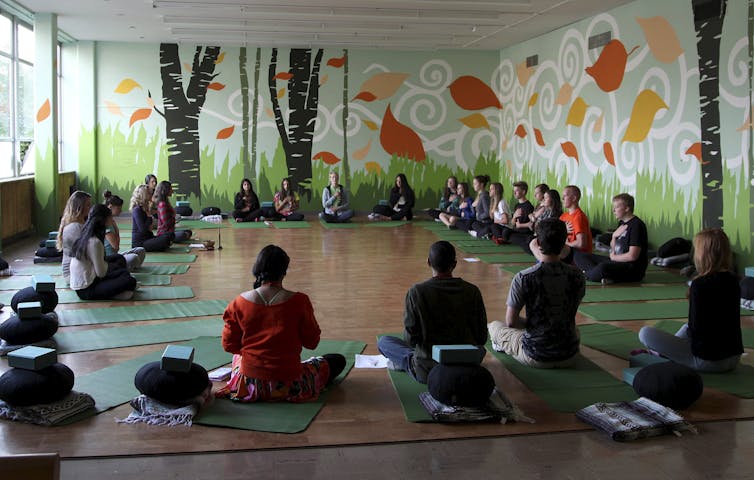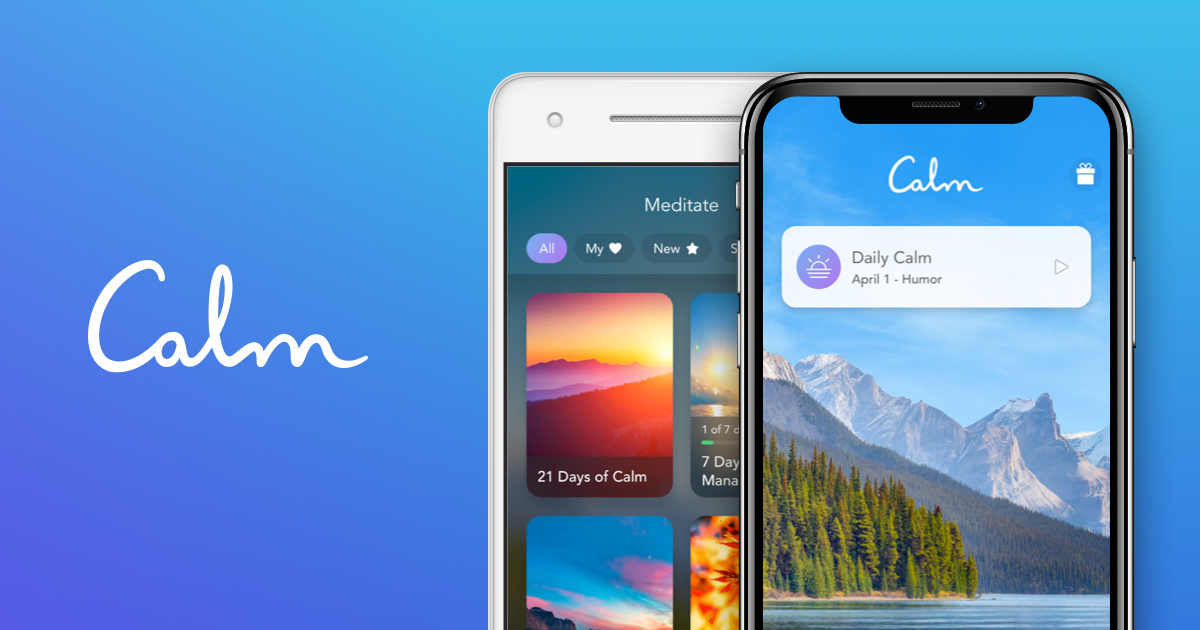Unlocking Well-being: The Transformative Power of Meditation

In today’s fast-paced and demanding world, finding inner peace and achieving a state of well-being has become essential. One powerful practice that has gained significant attention for its positive impact on overall health is meditation. This article explores the connection between meditation and well-being, delving into its benefits, techniques, and how to incorporate it into daily life.
Benefits of Meditation

Physical Benefits
Meditation offers numerous physical benefits that contribute to overall well-being. By regularly practicing meditation, individuals can experience:
Reduces Stress and Anxiety
Meditation serves as a natural stress reliever, helping to reduce anxiety and promote a sense of calmness. The practice allows individuals to quiet the mind, release tension, and gain perspective on challenging situations.
Enhances Immune System
Studies have shown that meditation boosts the immune system, strengthening the body’s natural defense mechanisms. By reducing stress and promoting relaxation, meditation enables the immune system to function optimally, leading to improved health and well-being.
Improves Sleep Quality
Individuals struggling with sleep issues can benefit from incorporating meditation into their routine. Meditation helps relax the mind and body, promoting a peaceful state conducive to restful sleep. Improved sleep quality enhances overall well-being and energy levels.
Mental Benefits
Meditation positively influences mental health, offering various benefits to individuals seeking emotional balance and clarity. Some key mental benefits include:
Increases Focus and Concentration
Regular meditation practice enhances focus and concentration, allowing individuals to remain present and engaged in their daily activities. The practice trains the mind to stay attentive, leading to improved productivity and performance.
Reduces Depression and Negative Emotions

Research suggests that meditation can help alleviate symptoms of depression and reduce negative emotions. By cultivating mindfulness and self-awareness, individuals can develop a healthier relationship with their thoughts and emotions, promoting emotional well-being.
Boosts Creativity
Meditation stimulates creativity by quieting the mind and allowing space for new ideas and insights to emerge. This creative boost can benefit various aspects of life, from professional endeavors to personal hobbies.
Emotional Benefits
In addition to physical and mental well-being, meditation also provides emotional benefits. Some notable advantages include:
Cultivates Emotional Resilience
Regular meditation practice strengthens emotional resilience, enabling individuals to navigate life’s challenges with greater ease. It helps build emotional stability, allowing individuals to respond to difficult situations with clarity and composure.
Enhances Self-Awareness
Meditation cultivates self-awareness, helping individuals develop a deeper understanding of themselves, their emotions, and their thought patterns. This heightened self-awareness fosters personal growth and self-compassion.
Promotes Mindfulness and Present-Moment Awareness
By practicing meditation, individuals learn to be fully present in the moment, embracing each experience without judgment. This mindfulness and present-moment awareness lead to a richer and more fulfilling life.
How to Meditate
To start reaping the benefits of meditation, follow these steps to establish a solid meditation practice:
Find a Quiet and Comfortable Space

Choose a quiet and serene space where you can relax and focus without distractions. It could be a dedicated meditation room or simply a quiet corner in your home.
Choose a Meditation Technique
Several meditation techniques cater to different preferences and goals. Explore various techniques and find one that resonates with you. Here are three popular methods:
Mindfulness Meditation
Mindfulness meditation involves focusing on the present moment and observing thoughts and sensations without judgment. It cultivates awareness and helps individuals develop a non-reactive relationship with their experiences.
Loving-Kindness Meditation
Loving-kindness meditation focuses on generating feelings of compassion and love towards oneself and others. It involves repeating affirmations and visualizing sending positive energy to individuals and the world.
Transcendental Meditation
Transcendental meditation utilizes a mantra—a specific word or sound—to quiet the mind and enter a state of deep relaxation. It allows the mind to transcend everyday thoughts and enter a more profound state of awareness.
Set a Regular Meditation Practice

Consistency is key when it comes to meditation. Set aside a specific time each day for your practice, whether it’s in the morning, during the day, or at night.
Focus on Breath and Thoughts
Once you’re settled in your chosen meditation posture, bring your attention to your breath. Notice the sensation of each inhale and exhale, allowing your breath to flow naturally. If your mind wanders, gently guide your attention back to your breath without judgment or frustration.
As you become more comfortable with focusing on your breath, you can also observe your thoughts. Instead of getting caught up in them, simply acknowledge their presence and let them pass by, returning your attention to the present moment.
Practice Non-Judgmental Awareness
Incorporate non-judgmental awareness into your meditation practice. Rather than labeling thoughts as “good” or “bad,” view them impartially. Recognize that thoughts are a natural part of the mind’s activity and that you have the power to observe them without attaching meaning or significance.
Incorporating Meditation into Daily Life
To maximize the benefits of meditation, integrate it into your daily routine. Here are some practical ways to incorporate meditation into different aspects of your life:
Morning Meditation Routine
Start your day with a short meditation session. Set aside a few minutes each morning to connect with yourself, set intentions for the day, and cultivate a sense of inner calm and focus. This practice can enhance your overall well-being and help you approach the day with a positive mindset.
Mindful Eating
Practice mindfulness during meals by paying attention to the flavors, textures, and sensations of each bite. Slow down and savor each mouthful, fully engaging your senses. By being present and mindful while eating, you can develop a healthier relationship with food and enhance your overall well-being.
Meditation for Stress Relief

Whenever you feel stressed or overwhelmed, take a break and engage in a short meditation session. Find a quiet space, close your eyes, and focus on your breath. Allow the practice to calm your mind and release tension from your body. Regularly incorporating these moments of relaxation can help manage stress levels and promote well-being.
Meditation for Better Sleep
Create a bedtime routine that includes a relaxation meditation practice. Dedicate a few minutes before bed to unwind, release any lingering thoughts or worries, and prepare your mind and body for restful sleep. This practice can promote a sense of tranquility and improve the quality of your sleep.
Meditation and Well-being in Different Settings
Meditation and well-being go hand in hand, and their benefits can extend beyond personal practice. Various settings and institutions have started recognizing the value of incorporating meditation to enhance overall well-being. Here are some examples:
Workplace Well-being
Companies are introducing mindfulness and meditation programs to support employee well-being and productivity. By offering meditation sessions, mindfulness training, or dedicated spaces for quiet reflection, employers are acknowledging the positive impact meditation can have on employees’ mental health, focus, and job satisfaction.
Educational Institutions
Schools and universities are incorporating meditation practices into their curriculum or extracurricular activities. By introducing mindfulness techniques to students, educational institutions aim to enhance concentration, reduce stress, and promote emotional well-being, ultimately creating a conducive learning environment.
Health and Wellness Centers
Health and wellness centers offer meditation classes and workshops as part of their services. These centers recognize the role of meditation in promoting holistic well-being and offer a supportive environment for individuals to learn and deepen their meditation practice.
Community Organizations

Community organizations and centers often provide meditation classes and groups for the general public. These settings create opportunities for individuals to connect, learn from experienced practitioners, and foster a sense of community while improving their well-being through meditation.
Meditation and Mindfulness Apps
In the digital age, meditation and mindfulness apps have become popular tools for individuals seeking guidance and support in their meditation practice. Here are a few widely used apps:
Headspace
Headspace offers a variety of guided meditation sessions tailored to different needs and goals. The app provides courses on stress reduction, sleep, and focus, making it suitable for beginners and experienced meditators alike.
Calm

Calm offers a wide range of meditation programs, sleep stories, and relaxing music to support mindfulness and well-being. The app features guided meditations for different purposes, such as anxiety relief, gratitude, and self-compassion.
Insight Timer
Insight Timer is a free meditation app that offers a vast library of guided meditations from various teachers and traditions. It also provides a timer for self-guided meditation, ambient sounds, and a community feature to connect with other meditators.
10% Happier

10% Happier combines guided meditations, video lessons, and practical tools to make meditation accessible and applicable to everyday life. The app offers guidance from renowned meditation teachers and emphasizes the practical benefits of meditation for well-being.
Conclusion
In conclusion, meditation is a powerful tool for cultivating well-being and finding inner peace in a hectic world. Through its numerous physical, mental, and emotional benefits, meditation promotes stress reduction, increased focus, emotional resilience, and self-awareness. By incorporating meditation into daily life and exploring different techniques, individuals can harness its transformative power and enhance their overall well-being.
Read also
- Unlocking the Power of Psychology: 6 Tricks to Boost Your Mood Instantly
- Transform Your Life: Discover How to Live a Healthy Lifestyle Today!
FAQs
What is the best time to meditate?
The best time to meditate is whenever you can carve out a dedicated and uninterrupted space in your daily routine. Many people find that early morning or before bed works well, but choose a time that aligns with your schedule and allows for a calm environment.
Can meditation cure illnesses?
While meditation has been shown to have various health benefits, it is not a substitute for medical treatment or a cure for illnesses. However, it can complement traditional medical approaches by promoting overall well-being and stress reduction.
How long should I meditate each day?
Start with a few minutes of meditation each day and gradually increase the duration as you become more comfortable. Aim for at least 10-15 minutes per day, but even a short daily practice can bring benefits. Find a length of time that works for you and is sustainable in your routine.
Can I meditate lying down?
While it is possible to meditate lying down, it is generally recommended to sit upright with a straight spine to maintain alertness and avoid falling asleep. However, if physical limitations make sitting difficult, lying down can be an alternative, ensuring you remain aware and focused.
Is meditation suitable for everyone?
Meditation is generally suitable for most individuals. However, it is essential to consult a healthcare professional if you have any specific health concerns or conditions. They can provide guidance on integrating meditation into your well-being routine.




